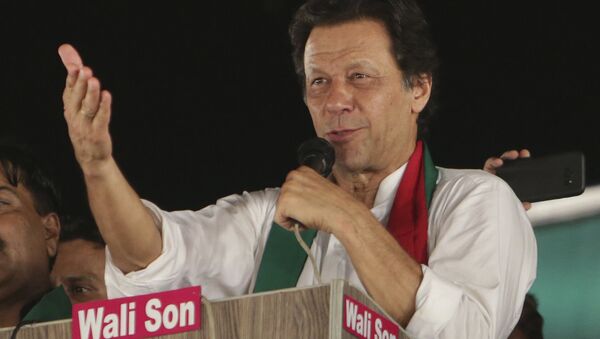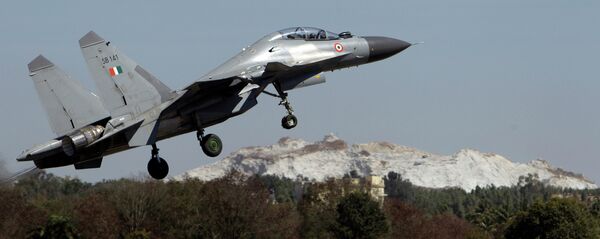Imran has even been listed by an American newspaper as a worthy contender for the Nobel Peace Prize after he successfully defused tensions with India following the recent flare-up over Kashmir, which might have led to full-scale war. There have been other achievements too.
On the cricket pitch Imran helped pull off some incredible victories for Pakistan. Against all the odds, he led his country to their first and to date only World Cup victory in 1992.
— Alan Wilkins (@alanwilkins22) 27 июля 2018 г.
His greatest Test though comes as his country’s Prime Minister.
Mission impossible? Well, Imran seems to be making a good stab at it. To use a cricketing analogy, his innings is progressing nicely, with his choice of shots exemplary.
His first priority, understandably enough, given Pakistan’s parlous financial state, was to look for friendly donors. He made two state visits to Saudi Arabia, in September and October, the result of which the KSA agreed to give Pakistan $3bn in foreign currency support for a year and a further $3 billion in deferred payments for oil imports.
Visits to the UAE resulted in another £3bn in loans.
Imran also travelled to China in the autumn and in February it was announced that Beijing would provide an additional $2.5bn in loans.
READ MORE: Indian Minister Asks if Pakistan PM Generous Enough to Hand Over Masood Azhar
In seeking financial assistance there was a refreshing candour about Imran’s approach. ‘We are desperate for money’ he said, in response to questioning from the UK’s Independent newspaper, as to why he was attending the Future Investment Conference in Riyadh, so soon after the murder of Jamal Khashoggi.
What made Imran’s dash for cash all the more urgent was that in September, the US confirmed it would cut $300m in aid to Pakistan. Not only that but Secretary of State Pompeo also counselled the IMF against coming to Pakistan‘s assistance- or if it did, on the need to impose draconian conditions.
Washington blamed Pakistan for not doing enough against terrorism. On 19th November, President Trump tweeted ‘We no longer pay Pakistan the $Billions because they would take our money and do nothing for us. Bin Laden being a prime example, Afghanistan being another’.
— Imran Khan (@ImranKhanPTI) November 19, 2018
Imran to his credit fired back his own Twitter torpedo.
It is commonly agreed that in the Trump-Imran Twitter War, the Pakistani Prime Minister was the winner. Not many people get the better of The Donald on social media. Imran did.
From nurseries to full forest areas, the success of Billion Tree Tsunami has been unprecedented with public & pvt involvement. Has given us confidence to take the initiative to 10 bn trees. KP's forest cover has increased by 4%, contributing to the fight against climate change pic.twitter.com/xFqJpwUq0u
— Imran Khan (@ImranKhanPTI) 10 марта 2019 г.
In November in Shanghai Imran met with his Russian counterpart Dmitry Medvedev and the two men agreed on greater co-operation between their countries. In February, Pakistan signed a $10bn gas pipeline agreement with Russia.
Thirty years on from the Soviet Union’s military withdrawal from Afghanistan, when the Red Army was up against the Pakistan-backed Mujahideen, relations between Islamabad and Moscow have arguably never been better.
The measure of Imran’s statesmanship can also be seen in the way he recently defused tensions with India after 44 Indian security forces were killed in Kashmir and India launched a retaliatory air-strike on the Pakistan-controlled side of Kashmir
Imran’s olive branch to India, which involved handing back a captured pilot,
has led one US newspaper, The Christian Science Monitor, to place him on its ‘starting list’ of leaders, worthy of consideration for the Nobel Peace Prize.
Pakistan’s Foreign Minister Shah Mehmood Qursehi meanwhile has praised Russia’s role in de-escalating Pakistan-India tensions, while predicting that relations between his country and the US will take a ’new turn’ because of its key behind-the-scenes role in US-Taliban peace initiatives in relation to Afghanistan. In truth,for all it’s negative rhetoric towards the country, the US needs Pakistan as much as it has always done.
READ MORE: Pakistan’s JF-17 Thunders Will Get Deadly New Radar, Weapons Upgrades
Imran knows this which is why he feels he has leeway to strike deals with other countries not in Washington’s good books. While his first seven months have been impressive it’s important not to get too carried away. Tony Blair’s first seven months- indeed his first year in office, were pretty good too and as I wrote here ‘Had he (Blair) left office in the summer of 1998 he would have been remembered for posterity as a peacemaker’.
But he didn’t- and nine months later he was illegally bombing Yugoslavia. As for Nobel Peace Prize recommendations, don’t forget that Barack Obama actually won the Prize in 2009, after less than a year in office. Just over a year later he was bombing Libya.
Imran could turn out to be equally disappointing, at home and abroad. His carefully calibrated balancing act may lead to dropped balls. Tensions with India could flare up again at any point.
At the moment though, from a spectator’s perspective, there’s much to applaud about his performance.
The views and opinions expressed by the contributor in this article do not necessarily reflect those of Sputnik.
Follow Neil Clark @NeilClark66 and @MightyMagyar
Support his AntiStalker Crowdfund






